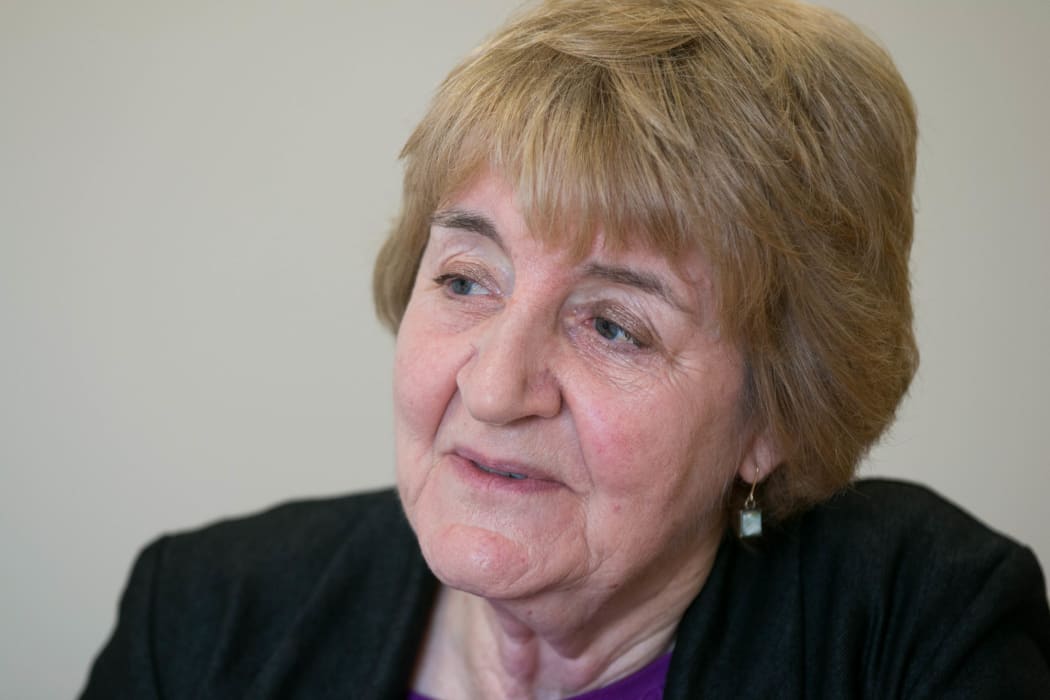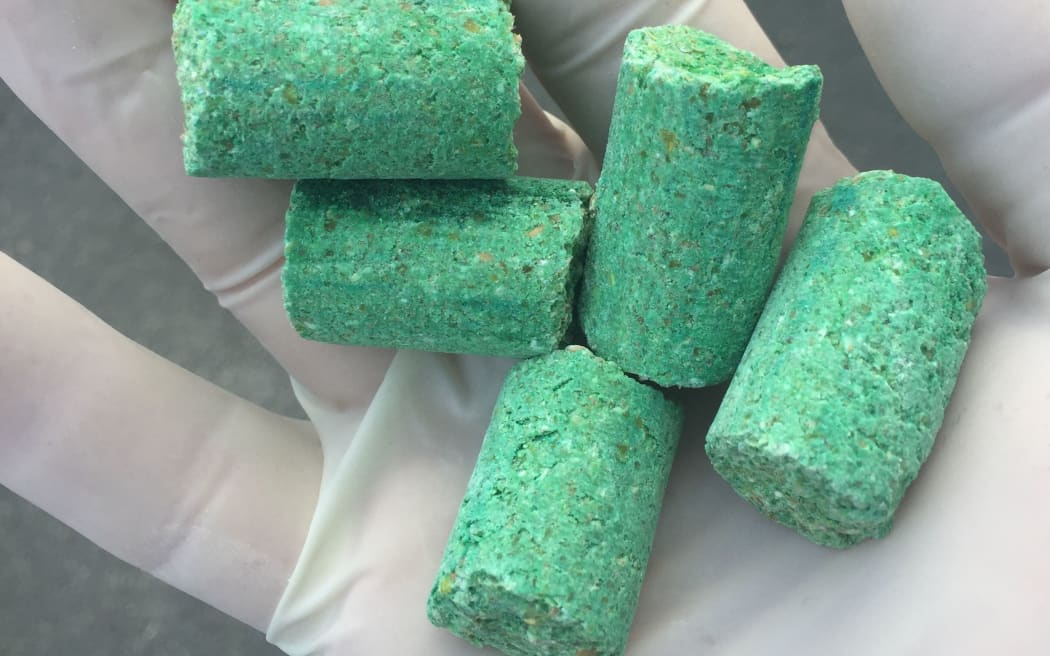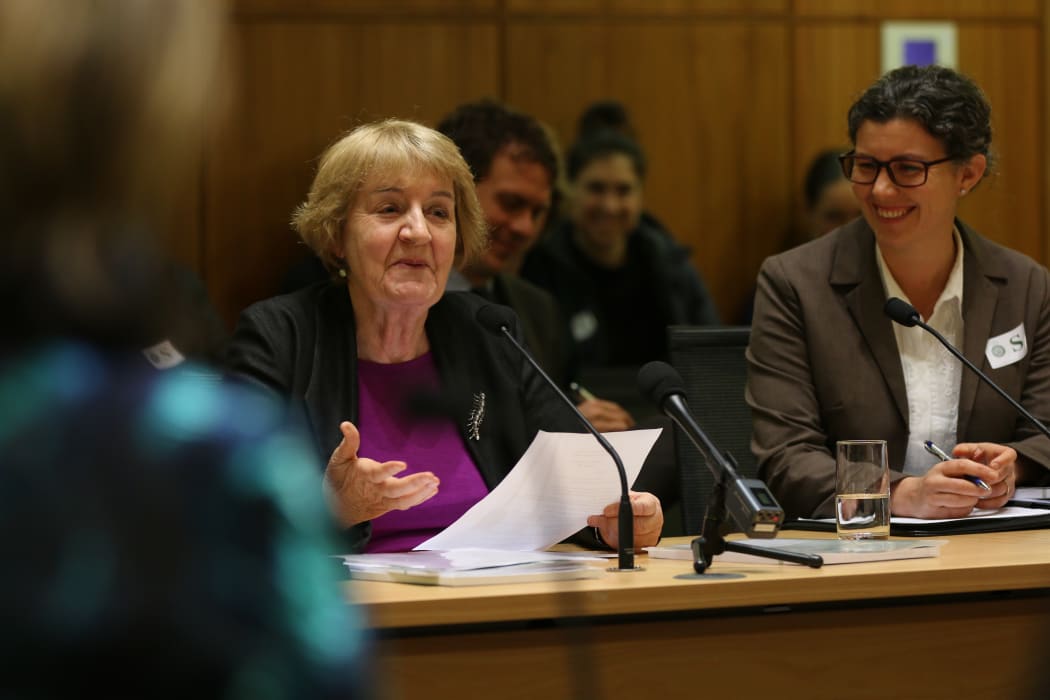Sometimes Parliament delegates powers to other people so they can help it keep a check on the potentially unbridled power of the Executive. Dr Jan Wright is one of those people.
For ten years she’s been the Parliamentary Commissioner for the Environment - the PCE. It’s one of just three roles (along with the Ombudsman and the Auditor General) that are given wide powers by Parliament to independently investigate things on its behalf.
The Parliamentary Commissioner for the Environment can investigate anything that relates to or impacts on the environment. They can question people under oath, and demand information. They’re basically a judge without the wig; or a permanent, self-directed Commission of Inquiry.

Parliamentary Commissioner for the Environment Dr Jan Wright. Photo: VNP / Daniela Maoate-Cox
I asked Dr Wright whether she sees herself as an unofficial opposition to Government. Jan Wright admits she likes to say what she thinks, but isn't bothersome, nor does she see the role as inherently oppositional. She says rather that she follows the facts where they lead.
“It’s not that I always come out with reports that upset the Government. In fact, when I look back at the reports, ...the investigations, I pretty well always upset somebody, some party, and make another one happy.”
Yes. sometimes the outcomes of her investigations annoy the Government, but equally, sometimes her findings clash with the opposition. The possibility the role will vex a government is presumably the reason that the PCE's salary is legislatively protected - it cannot be reduced during her term.
“I’m naturally a questioning sort of a person. ...I do really like to find out about something. Forming opinions, putting it all together and saying where I’ve got to and what it means.”
Following the facts

1080 poison pellets. Photo: Supplied
She has not been afraid to make unpopular calls when the facts lead here there. After researching whether airdrops of the poison 1080 were appropriate she announced a controversial finding about 1080.
“It’s not perfect, but this is very, very good and we have nothing else that can do the same job. And what’s more, our birds and other creatures being eaten by predators are in a dire state. And so I came out and said we need to use more [1080].”
She sees her independence as a significant power in itself. She doesn’t report to a Minister and unlike a ministry, is not bound by any policy directives. She can say whatever she likes. And she notes that she can say things that are unpopular - like the call for more use of 1080.
“To say that we should use more 1080, or use it in more places or more often, whatever - is not something that a minister could ever say, but it’s something that I, as commissioner, could say straight out”.
While the role has a lot of power to investigate, she has no power to force change. Is this frustrating?
“Yes, and no.”
Dr Wright investigates, she provides information, and she seeks to influence MPs, power brokers and the public; but she has the patience to wait for results.
“Things take time to work through. Officials who are giving advice will take time to understand what I am saying. It might need a government to change before they can pick it up. I really see it as a long game.”
In the meantime, sometimes she changes her own mind about what the best course of action might be.
The taonga of an island

Jan Wright tells a select committee a joke before launching into a powerful report on birds. Sky Davies, who lead the report investigation looks on. Photo: VNP / Phil Smith
This week the PCE made her penultimate appearance before a Select Committee before relinquishing the post to the new commissioner, Simon Upton, in October.
She was there to talk through two reports - one a synthesis of other documents - the second a large new outcome of research into saving New Zealand’s birds.
Among its recommendations:
- Genetically engineered solutions to pest control, but acting while waiting for science to catch up.
- That 1080 is still a key part of the armory.
- More safe bird habitats, but bigger and connected.
- A border levy and tourist fees to enter national parks.
- Better support for community groups.
Read the full bird report - Taonga of an Island Nation: Saving New Zealand’s Birds
A natural communicator, Jane Wright tells stories and uses humour to explains the issues. Explaining that inbreeding at small bird sanctuaries may actually worsen the genetic diversity of at-risk species, like the "royal families of Europe", before turning to a local example.
"One of these [kokako], ...is now consorting with his grandmother. This might be a happy relationship, but it's not a healthy one."
Jan Wright ends her second term as the Parliamentary Commissioner for the Environment in October.

